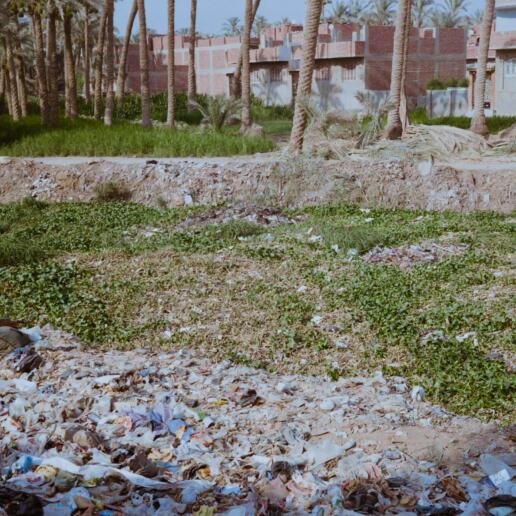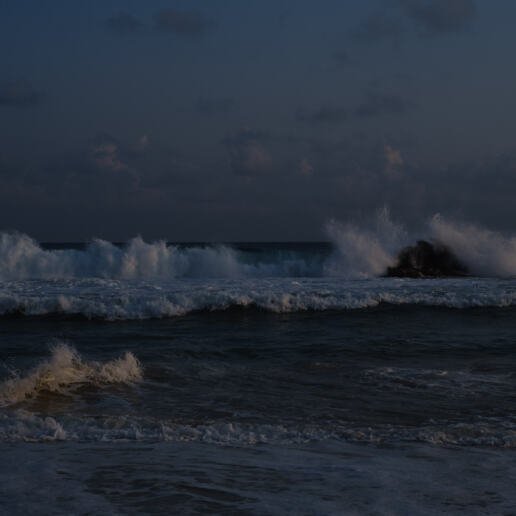An emergency call to the border. The one separating good from evil – human rights on one side, inhumane abuses on the other. A group of seven including two children, one case of trench foot – in total seven cases of “football”. We stuff the bags full of supplies, hop into the car and depart on the thin road between illegality and inhumanity.
It is a race against the machine. The steel muscles of the state against a group of cold, wet, and terrified refugees escaping yet another such machine back home. Syria, still occupied and pillaged, still regularly bombed by Israel, still trying to recover after the earthquake. Will we make it in time? Will we be faster than the “law”?
A Sunday outdoors
Forest to me and to most other Lithuanians means mushroom picking, long walks, camping, and fun barbecues with friends. These contexts are about to be amended.
Loaded with heavy rucksacks, and clad in waterproof boots we are having a seemingly perfect Sunday outdoors. Spring sounds, sights and smells are relentlessly attacking our senses and caressing our anxiety-ridden hearts. A little chit-chat goes a long way in soothing the uncertainty of what is ahead of us. The swamps on both sides of the road, striking as they are in their beauty and serenity, are not very forgiving to foreign feet. A wrong step and you are a well-preserved artefact for future archeologists. A shudder passes through me when I imagine navigating them at night. We on a daytime mission are lucky, they are not.
A few kilometers later we are close. The pin stares at us from the map and from the other side of a large swamp covered in tall dry stalks. The voice on the phone tells my partner that we are so close they can hear our steps. Minutes later we finally reach them.
‘No’
We find them lying down on a tiny peninsula protruding into the swamp. As we approach, the soaking wet ground moves under our feet as if it is placed on invisible springs. The very ground on which they are lying afraid to stand up, to be seen, afraid to be beaten again.
The guards on the evil side assaulted them, intimidated, damaged their phones, and destroyed passports. Now is the perfect time to tell them that it will not happen here on the good side. To congratulate them! Except that we cannot. It has happened here, it does happen, and it will happen more. Ahlan wa sahlan (ar. welcome) to Europe. Almost, as they are still “illegal”.
Like children on Christmas we rush to open the bags and distribute the supplies – food, clothing, medicine, battery packs, and, most importantly, hot tea and cigarettes. The men immediately offer two cigarettes back to us. We all light up while they smoke and drink hot tea. Their tired faces radiate a glimmer of hope. Hope that we are about to shatter.

The little five-year-old girl is acting out, pushing the trees, not listening to adults, making funny faces at us. A few silly faces back at her and we seem to have become friends. The adults—those who can speak at least some English—are bombarding us with questions and pleas for help. “Please walk with us and take us out of the border zone”, “Please help us”, “Please look at my injured feet”, “Please show us where to go”, “Please, please…“. The answer to all is a hard no. No, we will not walk with you, no, we cannot show you where to go, no, we cannot help you other than provide humanitarian aid. It would be hard enough to explain this without the language barrier, but now it seems nearly impossible. The glimmers of hope on their faces are quickly clouded over by hopelessness.
The few words of Arabic that I know seem to soften the impact of the harsh, rational no. How can we explain to them that we have come all this way only to give them humanitarian aid? How can we explain that we are absolutely powerless? How can we tell them that there is no ‘good’ side of the fence? It is hard to beat hundreds of years of European marketing. Especially with limited English sprinkled with some Arabic to make it more humane. Tamam (ar. okay), mazbout (ar. correct), in sha’Allah (ar. God willing), mumkin (ar. maybe) – maybe our mission here, if not to change anything, is to let them experience some humanity for a change?
Family & Football
Family for Arabs arguably plays a much more important role in their lives as it does for us neoliberalised Europeans. The concept includes not only the nuclear family, but the extended one too. Unlike us, not only for festivities or funerals do they remember their uncles, grandmas and cousins. Family, extended family is part of day-to-day life. However, now they are about to encounter our legal definition of ‘family’.
I ask the mother for her passport and those of her children. Even though it is in violation of international law, pushing back refugees has nearly become the new norm. Not when they are with children though. For now. They can apply to European Court of Human Rights (ECHR) for an interim measure which would prevent the host country from pushing them back. Along with the signatures we will send their passport copies to ECHR in hope the court would prevent the mother and her children from being pushed back.
But what about the men? All seven members of the group consider themselves family. Back in Syria, but here you are not. After our deliberate yet failing attempts to communicate this new notion of family to the group they still do not get it. One approaches me for clarification. Using signs, body language and a few English words I show him that the mother and children should be okay, but for the men it is a distant maybe. He still refuses to comprehend. I tell him that when the men get caught by our border guards, the guards might detain them, but most likely will push them back to Belarus. He looks puzzled in disbelief. Desperately, I tell him “you know, it’s like football”. He smiles painfully, then laughs and nods. He finally understood – this is a just a game. He, they are the game.
As puzzled as they are we take our leave. As for their fate, in sha’Allah.

Sisyphus
On the way back there is plenty to ponder. No, there is no feeling of heroism, no lightheadedness. What is the point? What, if anything, did we accomplish? What will happen to these people?
It feels like a job Sisyphus would have been happy to take on. And repeating it, and repeating it. Repeat we will have to, because this “migrant crisis” or how the Lithuanian media prefers to word it “illegal migrant crisis” is not a crisis with a finite ending. With climate and ecological breakdown comes economic breakdown and ultimately the breakdown of the conditions to sustain human life.
This is just the very beginning. There will be millions upon millions more running for their lives. The only question is, will we, the fortunate, remain human in the process? There are no easy and painless solutions. Having a good heart will not suffice. In order to stay human, in order to live peacefully, we will have to relearn hospitality and incur costs.
Till then, someone will have to navigate that thin road between illegality and inhumanity. Even if it is a job fitting Sisyphus.





